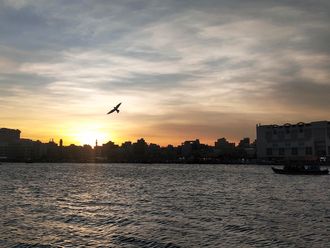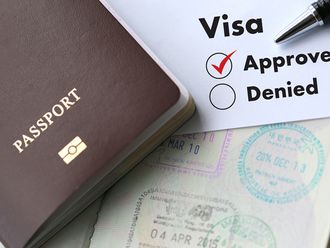
Mnama: Bahrain, Saudi Arabia and the United Arab Emirates have stressed that the decisions to cut ties with Qatar were a sovereign right of the states concerned and aimed to protect their national security from the dangers of terrorism and extremism.
The three Gulf Cooperation Council (GCC) countries added in a joint statement issued in Geneva that the measures were taken after they exhausted all possible means following Qatar’s failure to comply with the Riyadh Agreement for the Return of Ambassadors and its Supplementary Agreement of 2014.
Response
Qatar also failed to honour its pledge and continued to support, fund and host terrorist, extremist and sectarian organizations, the three countries said in their response to the comment issued by the High Commissioner for Human Rights on June 14 on the impact of the Qatar diplomatic crisis on human rights.
On June 5, Bahrain, Saudi Arabia and the United Arab Emirates severed ties with Qatar and closed their airspace, airports and seaports to Qatar-registered planes and ships, explaining that they wanted to protect their security and stability after they accused Doha of supporting and funding terror groups and using its media to sow divisions.
The UN Commissioner expressed fear that the decisions taken by the three states will affect human rights.
However, Bahrain, Saudi Arabia and the UAE said they regretted that the statement came at a time when communication with the Office of the High Commissioner remained open to ensure the rights of all concerned and to verify the information and allegations.
Sovereign right
“Decisions to cut ties with Qatar are a sovereign right of the states concerned and aim to protect their national security from the dangers of terrorism and extremism,” the Permanent Missions of the Kingdom of Saudi Arabia, the United Arab Emirates and the Kingdom of Bahrain to the United Nations in Geneva said in their statement.
“These decisions came after exhausting all possible means as a result of Qatar’s failure to comply with the Riyadh Agreement for the Return of Ambassadors and its Supplementary Agreement of 2014, and its continued support, funding and hosting of terrorist, extremist and sectarian organizations.
"These decisions were taken in full conformity with the fundamental principles of Public International Law.”
Humanitarian, health cases
The states added that “further to these decisions and for the sake of our brotherly Qatari people, which is a natural extension of its brothers in the three states, it was decided to take many measures aimed at addressing humanitarian and health cases and establish hot lines in each country so that cases can be reported and appropriate action be taken, in a manner consistent with international obligations under international human rights law and our long humanitarian traditions.”
The permanent missions added that they were willing to continue “working with the concerned parties in order to achieve the desired results of this break-up, namely, to maintain security, to combat terrorism and to safeguard the stability and well-being of the people of the region, including the brotherly Qatari people, in full respect for their human rights’ and international humanitarian law’s commitments.”












